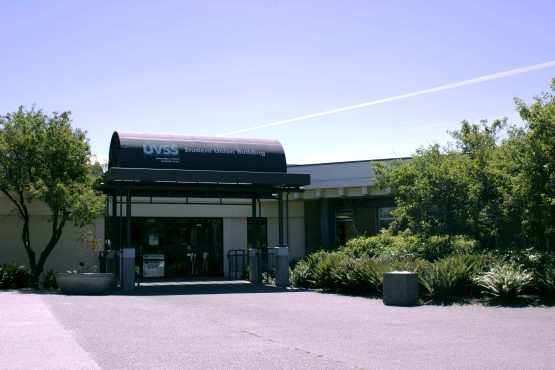For the first time since it was created during the UVSS elections in 2015, the position of Director of International Student Relations [DISR] sits vacant. Despite an extended nomination period for the position in this year’s election, no students had stepped forward when the term of Dheeraj Alamchandani, former DISR, came to an end on May 1.
With no DISR, officials at the UVSS are concerned international students won’t have a vote or representative seat at the university table for the 2018–2019 board term, affecting representation for 10 per cent of university students.
“The little voice that [international students] have from one representative is going to be nullified to zero,” Alamchandani said.
While Pierre-Paul Angelblazer, UVSS Director of Outreach and University Relations, said options for the fall are still being evaluated, he expressed concern that it would “almost certainly be expensive” to staff the elections office for a by-election.
Two Directors at Large (DaL) are typically elected to provide support for the five Lead Directors. In the absence of a DISR, Angelblazer said that a DaL will be elected to stand in for the DISR and support the portfolio of international students as the UVSS works to improve the position through policy.
However, at the UVSS board meeting on May 7, no volunteers stepped forward to handle the portfolio.
“These people need to not [just] see facts, and see us as humans, see us as people who have stories,” he said. “Imagine if there is no face to talk to, there is no representative — we can not tell the university they did not consult, they had nobody to consult to.”
As the liaison for international students on the UVSS Board, a DISR must represent the diverse experiences and perspectives of international students in discussions and decisions on campus.
“It’s about showing everyone that every single international student is probably a very different case from each other,” said Alamchandani. “I give the UVSS a perspective of international students whom they are responsible for — a body of 3 000 who didn’t grow up here.”
The last year has been a challenging one for the DISR — after a consultation process between UVic and the UVSS that Alamchandani later criticized for lacking cohesive communication, UVic’s Board of Governors both capped tuition increases of current international students at four per cent and voted to raise tuition for incoming international students by 20 per cent.
Alamchandani has also worked towards helping international students find local resources and connections, particularly jobs. Through a sponsorship he arranged, several students attended the Vancouver Island Economic Alliance conference in Nanaimo and a few found jobs from connections built there.
“Just imagine their first jobs in Canada — instead of being a basic minimum wage job — if they start off with a job which is gonna potentially lead them into their career, how amazing is that?” said Alamchandani.
Despite the impact that representing international students can have, Alamchandani stated that prospective DISR nominees he spoke to were deterred from running by the reputation of previous UVSS elections.
“As soon as we say UVSS elections, international students who are already striving for a base in the community [think] why do they want to get involved in such a twisty and twirly election?” said Alamchandani. “They said, ‘we don’t want to step up because UVSS elections — not the position — but just the election phase is stressful.’”
However, at the UVSS board meeting on May 7, no volunteers stepped forward to handle the portfolio.
Members of the incoming UVSS Board talked with interested students during the election, according to Angelblazer, but those students learned about the opening after the nomination period had closed.
Though Alamchandani looks to continue his work in an unofficial volunteer capacity, no one has filled his shoes with the official backing and resources of the UVSS, which he says makes a difference when it comes to credibility.
Alamchandani is especially concerned about the loss of UVic’s accountability to students for future tuition hikes.
“These people need to not [just] see facts, and see us as humans, see us as people who have stories,” he said. “Imagine if there is no face to talk to, there is no representative — we can not tell the university they did not consult, they had nobody to consult to.”
“If you want them to be transparent, if you want them to be accountable, then you need someone to hold them accountable. If there is no position, they can not be held liable for not being accountable.”







